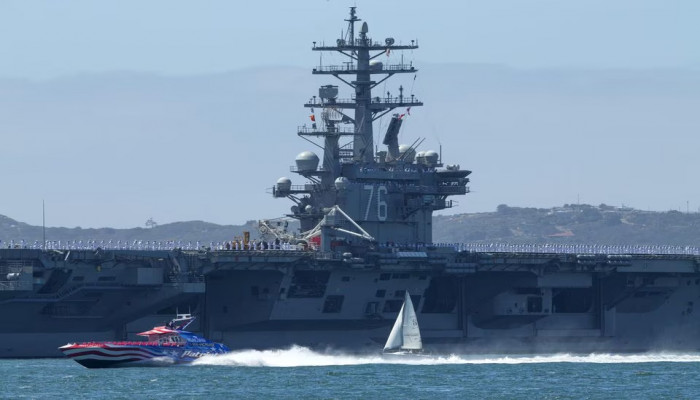Maritime industry explores nuclear power for ships as technology opens up
- In Reports
- 12:29 PM, Sep 20, 2023
- Myind Staff
As new technological possibilities arise, the marine sector is looking into the possibility of using nuclear fuel to power commercial ships, according to industry officials. However, they added, any potential nuclear fuel alternatives for ships are at least 10 years away.
Nearly 3% of the world's CO2 emissions come from shipping, and the sector is under pressure from investors and environmentalists to discover cleaner fuel alternatives, such as ammonia, methanol, and wind.
Military icebreakers and submarines have previously been propelled by nuclear energy, but the cost and insurers' reluctance to insure vessels entering commercial ports without a better understanding of the risks have limited the use of nuclear energy by merchant ships.
A survey in May by the International Chamber of Shipping Association said nuclear fuel was being viewed with more interest than in 2021, with some seeing nuclear-powered commercial ships being viable within the next decade.
Small, mass-produced reactors that are designed to be installed aboard ships are less powerful and use less fuel than conventional nuclear power plants.
"The development of the fourth modular nuclear reactors generation is paving the way for possible future applications on board of ships," a spokesperson with Italy-based shipbuilder Fincantieri said, referring to the smaller nuclear plants.
"At the moment, several technology providers are dealing with manufacturing of prototypes, the development processes of which are at different levels of maturity, envisaging more or less a decade before completing proof of concepts."
Fincantieri was "interested in following the evolution of these technologies which may result in significant contribution to the decarbonisation of ships related to our core business", which is cruise liners, naval ships and specialised vessels, the spokesperson added.
According to RINA CEO Ugo Salerno, one of the world's top ship certification firms, RINA, based in Italy, is conducting a feasibility study on the usage of nuclear fuel and is working with Fincantieri and a nuclear technology firm.
Salerno said container ships, which require significant power, were among the shipping segments that could be viable for nuclear fuel.
He said it was "most probably seven to 10 years" before production became feasible.
"We need to climb a huge mountain, which is public opinion," he said on the sidelines of a Capital Link shipping conference in London last week, referring to concern over using nuclear fuel.
The risks include how a small reactor will be fitted onto a ship and whether there is any potential exposure to radiation.
According to sources in the sector, there are also doubts over the ownership of the vessel, the safety precautions that must be taken when the vessel is in motion, and whether additional security is required at sea.
The UK-based CORE POWER company is working on a second project to create a prototype advanced molten salt nuclear reactor that burns liquid fuel rather than solid fuel. In such nuclear fission reactors, the fuel and coolant are combined in a fuel-salt that is liquid at high temperatures.
The loss of coolant, which can lead to the core overheating, is the most frequently mentioned problem with conventional nuclear reactors. According to CORE POWER, the possibility of a coolant loss accident is eliminated by using a liquid fuel where the fuel and coolant are the same.
"We think that sometime around 2032 to 2035, we should be able to demonstrate the first one," CORE POWER CEO Mikal Boe told reporters during London International Shipping Week on Sept 14.
"If we're going to have a clean, green transition, nuclear has to be part of it."
Image source: Reuters







Comments